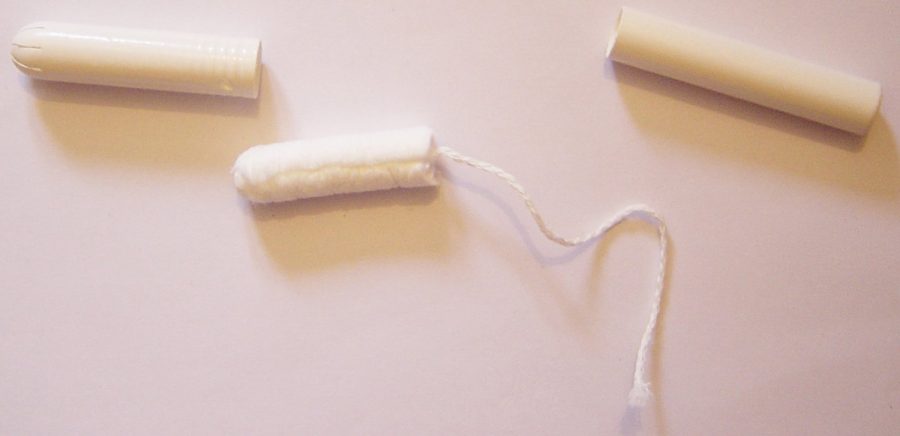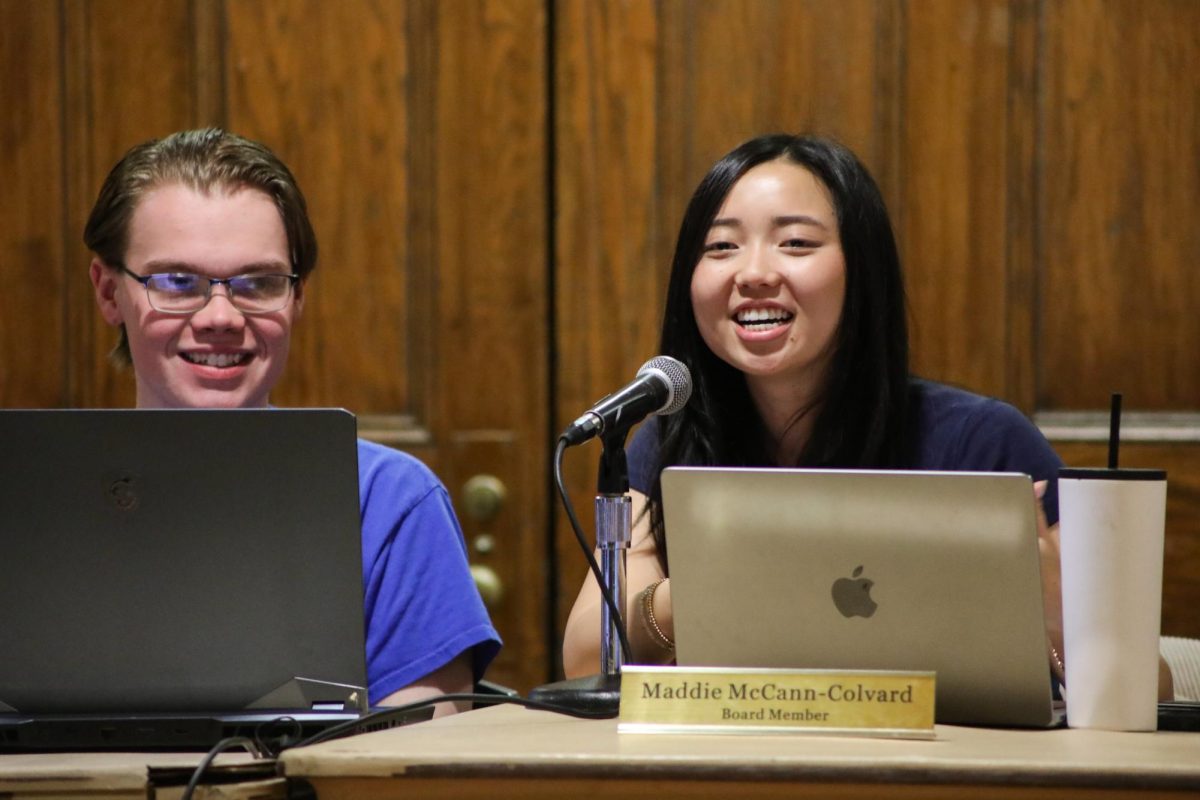Opinion | More needs to be done for access to menstruation products, period
March 4, 2020
If you don’t get your period, odds are you don’t have an inconvenient, monthly reminder that pads and tampons are not easy to access for everyone who menstruates. Accessing menstruation products is still a hardship for many people here and in other countries.
Even though conversation around period poverty — the inadequate ability to obtain or access menstruation products because of financial hardship — is by no means new or revolutionary, action towards the issue is varied in the United States. Today, 35 states still tax women for sanitary products, and free access to pads and tampons in places like universities, schools, libraries and park centers remains inconsistent.
These inconsistencies mean that access is unreliable on the whole, despite the fact that the root of the problem hasn’t changed. New legislation is necessary, but until government support of free menstrual products becomes more uniform, institutions such as schools, park centers and even businesses should step in to provide. Doing so might hopefully bring more exposure to the issue and encourage large-scale change.
Pitt set an example this past fall, installing free menstrual product dispensers in a few bathrooms on campus following student campaigns, which is a good start. Numerous other universities, schools and even independent workplaces have done the same for the people who learn and work in their space.
But the people of Scotland don’t have to rely on their administrators or employers at this point. The Scottish government took matters into their own hands in 2018 and made menstrual products free to students in all high schools, colleges and universities in the country. This came after a survey by Young Scot revealed that one in four student respondents in the country had experienced period poverty.
Now, the Scottish government is looking to make sanitary products free for all citizens. Scotland’s parliament advanced legislation on Feb. 25 on a bill that proposed universal access to free menstruation products. If an entire country can have a discussion surrounding access to period products, our schools, and eventually our government, can do the same.
Scotland recognized that people can focus, perform and genuinely live better when they aren’t worried about having access to period products. While the U.S. government is not currently supporting efforts at individual schools and other institutions that are providing free menstrual products, it’s apparent that more needs to be done to bring the issue to their attention.
There is no guarantee that more schools, park centers or businesses providing tampons and pads will make the U.S. government step in, though it is the right thing to do. But regardless, I find that continuing to punish people who menstruate through legislative inaction is even worse.
Whether it’s bleeding through their clothes, the fear of an unexpected period or the price associated with period products, the hurdles presented by a natural monthly occurrence are many. Universal access to menstruation products such as tampons and pads is essential, impacting women as well as transgender and nonbinary people.
Menstruating is just as natural and inevitable a process as using the bathroom, which is why it’s important that the resources available reflect that. When people go to the bathroom in a public space, they don’t have to worry about paying for toilet paper or even having toilet paper dispensers on hand. Tampons and pads, on the other hand, are not as easy to come by, even though menstruation is just as natural.
Taboos and stigmas surrounding periods contribute to the prevention of access to the materials people need, when they need them. Even as a 21-year-old woman, I notice the embarrassment, discomfort and humiliation that goes hand in hand with periods. I used to hide tampons in my sleeve when leaving class to go to the bathroom, or I would panic that I somehow bled through my clothes onto my seat, nervous about standing up when class was finished.
Recognizing not only how much my period panic would distract me from concentrating and learning, but also induce deep feelings of embarrassment, it is easy to see how much something as natural as a period can get in the way of our daily routine.
If schools and business began providing period products, people would have increased exposure and more acceptance towards these products. Seeing something that is rarely talked about in the open could help destigmatize periods and further open the topic up for much needed discussion.
Universities aim to create the best possible learning environment, and it’s clear that access to period products can play into creating better conditions for learning and growth. Even if universities, companies and other businesses don’t want to make up for the lack of legislation and provide period products, they should want to enhance their students’ and employees’ experience and improve working conditions.
Scotland has the right idea by working towards becoming the first country to offer free sanitary products. They realized that period equity is essential to help ensure that people who menstruate are successful and unencumbered by the financial price tag and emotional burdens of a natural bodily function.
Until we can get there legally and put forth proper legislation, we need to realize what Scotland did, how it got there and work together to make a change. We need to talk about periods, demand access from smaller institutions and increase awareness about the financial, emotional and physical burdens that come with menstruation. Menstruation is not just a woman’s burden and free pads and tampons are not a luxury, period.




